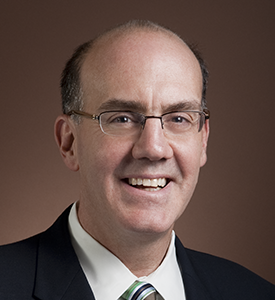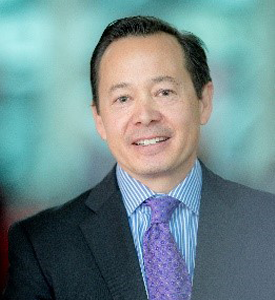FACILITATOR  Jim Good, Parkview Advisors Jim Good, Parkview Advisors
Jim is the founder of Parkview Advisors, a firm focused on helping water utilities make the most of every dollar. Clients include municipal water systems, contract operations service providers, technology firms, equipment manufacturers, and start-ups. With over 25 years in the water sector, Jim has led or held senior positions at large public and private sector utilities including the Pittsburgh Water and Sewer Authority, Veolia Water’s West Region and the California Water Service Group. Prior to working for Cal Water, Jim was Director of Congressional Relations for the National Association of Water Companies. Jim began his career with a stint on Capitol Hill where he worked for U.S. Representative and Senator Harry Reid in a variety of legislative roles. A Californian by birth and a Yinzer by choice, Jim graduated from Cornell University in 1985 with a BA in Government, and in 2000 from Golden Gate University with an MS in Finance. 
Pam Elardo, Deputy Commissioner, NYC DEP (Bureau of Wastewater Treatment) Pam Elardo joined the New York Department of Environmental Protection (DEP) as the Deputy Commissioner of the Bureau of Wastewater Treatment (BWT) in May 2016. DEP is responsible for the largest municipal wastewater utility in North America, protecting public health and the environment for over 8.5 million customers primarily through operating and maintaining 14 wastewater treatment plants and associated facilities. BWT has an annual operating budget of over $387 million and 1,800 employees. Pam brings a wealth of experience in wide range of wastewater management issues. Prior to coming to New York City, she was the director of the King County Wastewater Treatment Division (WTD), one of the largest public wastewater utilities on the U.S. west coast in the Metropolitan Seattle area. Previous experience included implementing the Clean Water Act regulations with the Washington State Department of Ecology and working in the water and sanitation sector as a U.S. Peace Corps Volunteer in Nepal. Pam has also been engaged internationally on water and sanitation issues with Asia Development Bank, the World Bank, the Living Earth Institute (LEI), and other non-profit organizations. Pam holds a master’s degree in environmental engineering from the University of Washington and a bachelor’s degree in chemical engineering from Northwestern University. She is a licensed Professional Engineer and certified Group IV Wastewater Treatment Plant Operator. 
Andrew D. Seidel, CEO & Chairman, UGSI Solutions Mr. Andrew D. Seidel is the Chief Executive Officer and Chairman of UGSI Solutions, Inc. – a process technology company specializing in chemical feed and disinfection. He serves as a Director on the Boards of O’Brien & Gere, a private engineering services company located in Syracuse, NY and Ostara Nutrient Recovery Technologies, Inc. a resource recovery company located in Vancouver, Canada. Mr. Seidel was a Founder and the CEO of Underground Solutions, Inc. which was sold to Aegion (NASDAQ: AEGN) in 2016. Mr. Seidel served as the Chief Executive Officer of United States Filter Corporation from 2000 to 2004 after serving in multiple senior management positions. He was a Senior Advisor at Vantage-Point Venture Partners, a venture capital fund and has served on the Boards of Aqua America (NYSE: WTR), Veolia Environnement (NYSE: VE), Nuverra Environment Solutions, and National Waterworks. He holds a B.S.E. degree in Chemical Engineering and an M.B.A. from the Wharton School at the University of Pennsylvania. | 

 Jim Good, Parkview Advisors
Jim Good, Parkview Advisors

